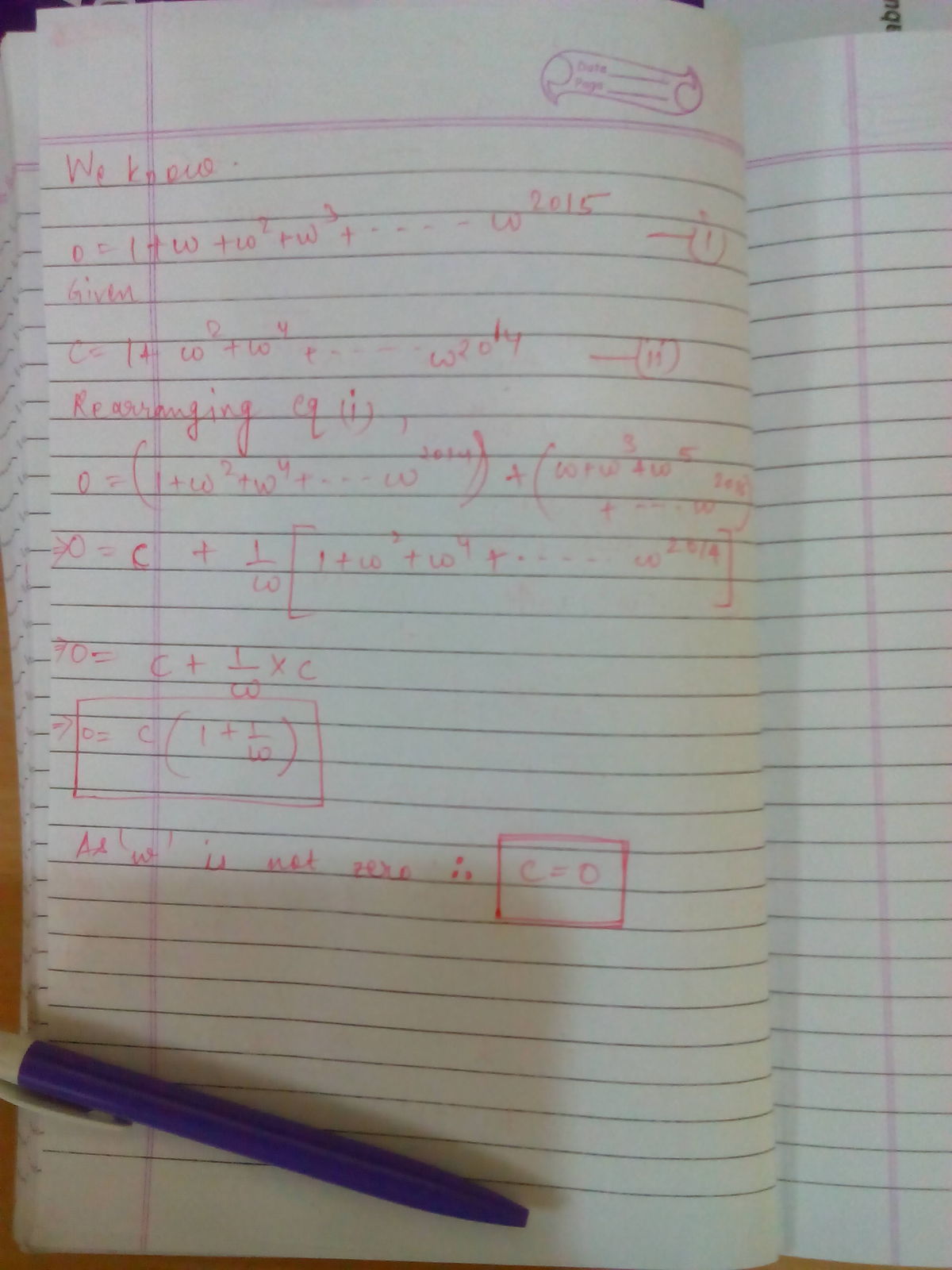An algebra problem by Hobart Pao
If C = 1 + ω 2 + ω 4 + ω 6 + ⋯ + ω 2 0 1 4 , where ω represents the 2016th root of unity that isn't 1 or − 1 , find the value of C .
The answer is 0.
This section requires Javascript.
You are seeing this because something didn't load right. We suggest you, (a) try
refreshing the page, (b) enabling javascript if it is disabled on your browser and,
finally, (c)
loading the
non-javascript version of this page
. We're sorry about the hassle.
4 solutions
Great, that's what I did.
We can rewrite C as
= k = 0 ∑ 1 0 0 7 ( ω 2 ) k
We can see that this is a finite geometric progression with a common ratio ω 2 and 1 0 0 8 terms.
= 1 − ω 2 1 − ( ω 2 ) 1 0 0 8
Since ω = cos 2 0 1 6 2 π + i sin 2 0 1 6 2 π , ( ω 2 ) 1 0 0 8 = ω 2 0 1 6 = cos 2 π + i sin 2 π = 1 , then the numerator of the sum is 0 , and the sum equals 0 .
Multiplying C by ω², we get C*ω² = C using the fact that ω is a 2016th root of unity. Since ω is thus also not 0, we must have C = 0.

By GP formula:
C = w 2 − 1 w 2 0 1 4 w 2 − 1
C = w 2 − 1 w 2 0 1 6 − 1
C = w 2 − 1 1 − 1
C = 0